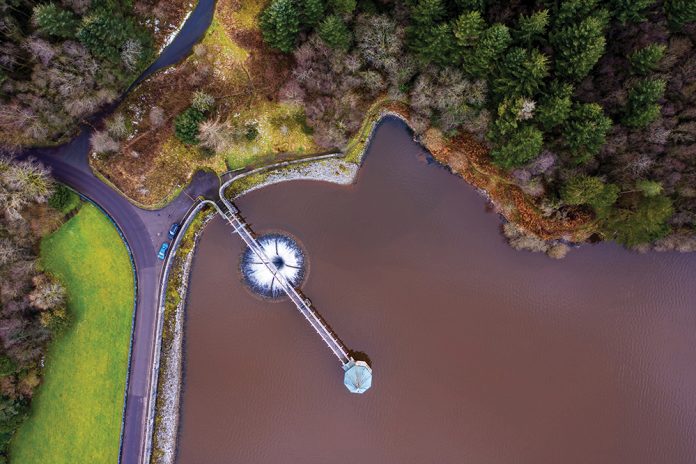Drinking water quality is of key importance to public health and the provision of safe drinking water has been recognised as one of the greatest technological and public health advances of the last century. Due to the strict standards set by the DWI, the quality of the UK’s drinking water is now among the best in the world.
The current system of delivering safe water to consumers in the UK is based upon significant investment in infrastructure and performs at an excellent standard at a very low cost. However, the challenge of taking water quality monitoring into the digital transformation of smart water has created new barriers for the UK water industry, which need to be overcome.
Creating smaller smart sensors and flow cells, whilst maintaining high standards and reliability, is a prerequisite to meet the needs and demands of water utilities. Historically, the industry has relied on compliance to the DWI regulations due to fast flowing samples, cool temperatures and small area contact. Monitoring water in distribution networks often means that water is being monitored in applications of lower flow, prolonged residence times and higher water temperatures. Compounding this, water in networks is very valuable to any water company, therefore allowing samples to simply run to waste is not the favoured option.
Water Quality Compliance
Regulation standards for potable water necessitates that sensors and flow cells meet a gold-standard of material compliance to ensure the materials used in the sensors do not contaminate the water. WRAS approval is the European hallmark of material quality required by the water sector to ensure this compliance. All potable water sensors need an audit trail to demonstrate that the materials used do not jeopardise water quality by polluting it with the residue left behind. Unlike WRAS approved analytical sensor technology, lower-cost sensors will plasticise the water, leaking chemicals into the source, which inevitably breaches standards by contaminating the water. This means that all water samples taken from the bypass to be tested are put to waste due to contamination from the sensor.
However, with WRAS approved, smart technology, like ATi’s MetriNet, the sample can be immediately returned back to the network, resulting in zero wastage, on average saving approximately 288 litres per day per system, which is 102,528 litres per year. There is no cumulative leakage as the sampled water re-joins mains flow, meaning WRAS compliant technology is a reliable and environmentally sustainable method for gathering data, capturing events and understanding why they occurred.
Setting Standards
The fast emergence of smart water raises major challenges for both water companies and supply chain alike. How can we drive the cost of vital sensors down, making it commercially viable to deploy sufficient numbers to gain the levels of data necessary to deliver the granularity of insight required for gains to be made? If not checked, this traditional procurement paradigm could lead to poor material standards, as manufacturers are forced to turn to lower cost-based manufacturing, with minimal material standards.
ATi UK’s Executive Director, Garry Tabor, believes that as the industry drives the future of smart water forward, we all have a responsibility to ensure that water quality standards are maintained. “As the global leaders in water quality sensors for smart water and pioneers of innovative solutions, ATi UK is committed to upholding and delivering the highest standards for our customers. All of ATi’s water quality sensors and flow cells meet WRAS’s required high standards, enabling them to be deployed for use as monitors within the water treatment process, right though-out the distribution journey, source to tap. ATi does not compromise on the standard of materials, instead we innovate through research and partnership with our customers to develop better technology at lower cost, enabling us to meet the high standards that WRAS sets.
“Whether our customers are using our water treatment works-based Q Series range or network deployed MetriNets, we provide continued confidence that our engineered solutions deliver the most advanced water quality technology available, manufactured to the best working practice and made with fully compliant, sustainable materials.
“By pioneering the development and deployment of innovative, industry-leading, customer focused solutions, we strive to set the standards of the water we drink and the air we breathe, allowing our customers to ensure a safe, efficient and healthy environment, whilst delivering first-class customer support.”
atiuk.com




